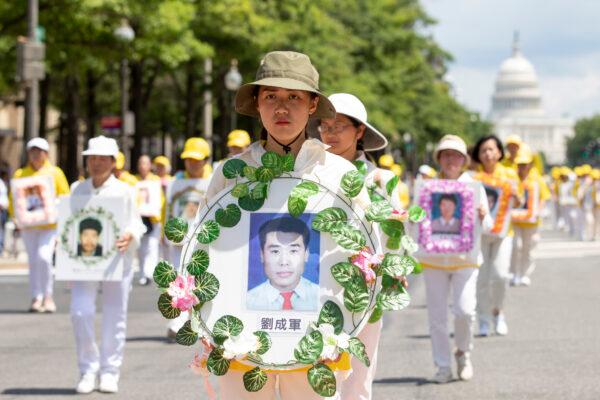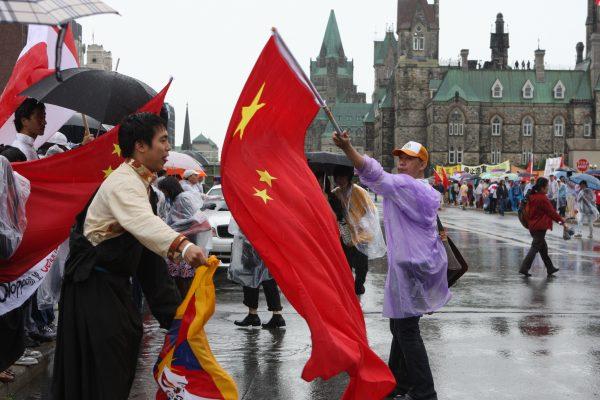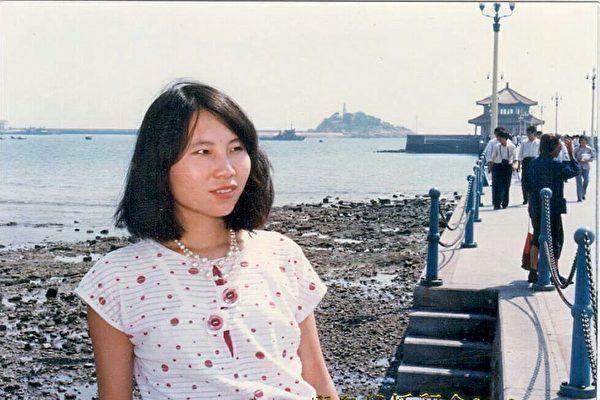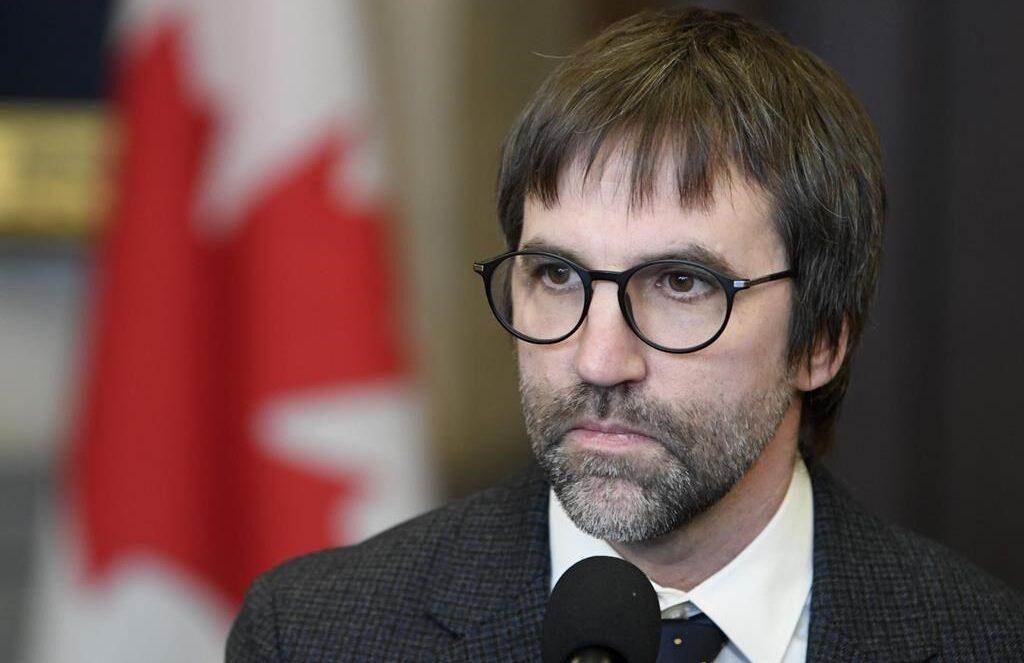The recently retired secretary general of Amnesty International in Canada says that after 20 years of observing Chinese human rights abuses in that role, it has been “truly despairing” to witness the lack of response to the brutal persecution of Falun Gong adherents in China.
“I’ve always been bolstered by the conviction and clarity of [Falun Gong] practitioners and their loved ones—by their resilience, by their determination to press on, and certainly by their strength and absolute courage in refusing to be silent,” Alex Neve said in a speech prepared for a webinar on the persecution campaign aginst Falun Gong and its implications for Canada-China policy, held on Dec. 9.
“But it has also been so truly despairing to witness this unrelenting and cruel human rights repression, and at the same time the half-hearted at best, and certainly woefully inadequate response, from the international community.”
Neve joined a panel of lawmakers, lawyers, and human rights advocates who convened recently in an online forum to examine the systematic nationwide rights violations by the Chinese Communist Party (CCP) against the Falun Gong spiritual practice and its consequences for Canada-China policy.
Neve said the range of human rights violations which Falun Gong practitioners have endured over the past 22 years—arbitrary arrest, unlawful imprisonment, unfair trials, torture, and murder—is “nothing short of heartless,” and that the Canadian government has to increase its efforts to work “both bilaterally and multilaterally” to intensify pressure on the Chinese regime to relent.
“We absolutely need to see intensified efforts within the international community, working with a broad array of governments, as broad an array as possible, to make it clear that China’s atrocious human rights record needs to be addressed,” he said.
“It is time for the world to find its voice with respect to China’s abysmal human rights record.”

Falun Gong practitioners take part in a parade commemorating the 20th anniversary of the persecution campaign against the group in China, in Washington on July 18, 2019. Samira Bouaou/The Epoch Times
A 2018 report titled Cold Genocide: Falun Gong in China authored by university of Manitoba professor Maria Cheung and other experts, found that the genocide of Falun Gong adherents “stands out as anomalous because it is virtually ignored.”
The report noted that it is historically rare for a genocide to last over 10 years, while the persecution campaign against Falun Gong, launched by the CCP in July 1999, has been sustained for two decades. Part of the reason is the regime’s efforts to hide evidence of their crimes while employing more subtle, long-term, and systemic forms of persecution such as “ideological conversion, propaganda, and demonization,” that contribute to a “slow-motion genocide.”
Irwin Cotler, the Canadian co-chair of the Inter-Parliamentary Alliance on China and a former justice minister, said in his speech to the panel that the persecution of Falun Gong adherents has “fallen off the international radar screen,” but “has to be returned to the public human rights agenda and become a priority with respect to our concerns and our advocacy.”
Cotler was first introduced to the persecution as a newly elected MP in 1999, when he took up the case of Falun Gong practitioner and then-McGill University professor Kunlun Zhang, who had been abducted, detained, tortured in China. Cotler set up a series of all-party press conferences on behalf of Zhang, as well as a number of other initiatives that eventually led to his release—despite being discouraged from doing so at first.
“I recall being advised by governmental officials that we should not hold these press conferences because the government was about to embark on a trade mission to China,” he said.
“My answer, reported in the press at the time, was that there is no contradiction between promotion of trade and promotion of human rights. The contradiction is between the promotion of trade and the lack of promotion and protection of human rights.”
Cotler, also the founder and chair of the Raoul Wallenberg Centre for Human Rights, said the persecution represents the Chinese regime’s “culture of criminality and corruption, and the impunity which underpins it.” He said Canada has a responsibility “to expose and unmask” this culture, because the CCP constitutes “the greatest threat to the rules-based international order.”
David Kilgour, former secretary of state for Asia-Pacific, told the panel that over the past 20 years “Ottawa’s silence on the ongoing mass human rights abuses to its people” such as those who practise Falun Gong is “one of the major issues that has shaped Canada-China policy for the worse.”
Kilgour, who co-authored the report “Bloody Harvest” showing evidence of large-scale forced organ harvesting of Falun Gong prisoners conscience in China, said if Canada took concrete action against Chinese officials responsible for human rights atrocities, such as using Magnitsky-style sanctions, it could be highly effective in countering the persecution.
“If Canada and other democracies showed more commitment to our values, the vile commerce [of organ harvesting] might end,” he said.

(L–R) International human rights lawyer David Matas, former justice minister Irwin Cotler, and former secretary of state for Asia-Pacific David Kilgour at the parliamentary international human rights subcommittee hearing in Ottawa on Nov. 3, 2016, where Matas and Kilgour provided a briefing on organ transplantation abuses in China. The Epoch Times
Panelists who participated in the webinar event also included Garnett Genuis, Conservative MP and shadow minister for international development and human rights; David Matas, human rights lawyer and co-author of “Bloody Harvest”; and Levi Browde, executive director of the Falun Dafa Information Center.
Persecution on Canadian Soil
Neve noted that the repression of Falun Gong practitioners is also happening on Canadian soil, referencing a report co-authored by Amnesty International and released in May that shows an escalating pattern of CCP-linked harassment and abuse against Falun Gong and other groups that draw attention to human rights abuses in China.“The unmistakable intent has been to disrupt and shut down activities in Canada that seek to draw attention to China’s notorious human rights record,” he said.
“The impact has ranged from inconvenience and frustration to intense levels of distress and fear. Falun Gong practitioners across Canada have been subject to that full range of interference and attacks.”
Neve said the harassment of Falun Gong and other groups, such as Hong Kong pro-democracy activists and Tibetans, takes several forms.
“It takes place on social media through surveillance, monitoring, and hacking of phones, computers, and websites; in print and broadcast media; on university and college campuses; at public rallies and cultural events,” he said.
“Individuals responsible for the threats often remain anonymous or invisible, but make it clear that they are strong backers of the Chinese government, often leaving no doubt that they are directed, supported or encouraged by Chinese officials. The threats are bullying, racist, bigoted, and frequently involve direct threats of violence, including sexual violence and even death.”

A man with a large Chinese flag blocks a Tibetan protester during a visit by then-Chinese leader Hu Jintao to Ottawa on June 24, 2010. The Epoch Times
Concerned by the frequency and intensification of incidents, Amnesty co-authored a comprehensive report for the Canadian government in 2017, including recommendations for a “more co-ordinated approach” to address Beijing’s threat to Canadians. They have seen little action or improvement in the situation since then, Neve said.
“Over the years, individuals have turned to Canadian officials and agencies, including municipal police, the RCMP, CSIS, Foreign Affairs, human rights commissions, and the courts for assistance. But the response has been piecemeal at best, non-existent at worst, and always confusing. More often than not, no effective steps have been taken in response,” he said.
“It is no surprise that the incidents are becoming more frequent and more disturbing as is the case in many other countries as well.”
Cotler said Canada needs to adopt legislation similar to Australia, to specifically counter Beijing-backed interference and “protect against the foreign penetration, intimidation, and harassment of Canadians,” including Falun Gong adherents.
He said Canada also needs to form strong alliances with other democracies to counter Beijing’s tendency to isolate and intimidate countries they have disputes with by using their “economic power and otherwise to bully countries one by one.”
Canadian Citizens Imprisoned in China
In his speech, Neve questioned Canada’s comparative lack of response to the case of imprisoned Canadian citizen and Falun Gong practitioner Sun Qian. He said the government should be giving her case the same level of attention as that of Michael Kovrig and Michael Spavor, two Canadians who were detained in China two years ago in apparent retaliation for Canada’s arrest of Huawei executive Meng Wanzhou on an extradition request from the United States.Sun, who had already been detained for three years, was sentenced to an additional eight years in prison earlier this year, based on a forced confession and a show trial. Sun also renounced her Canadian citizenship under suspected torture.

Sun Qian, a Falun Dafa adherent who has been illegally detained in China since February 2017, in an undated photo. The Epoch Times/Handout
Neve pointed out that the response to Sun’s case by the Canadian government has been near-silence.
“What we need to see is a similar prioritization of Sun Qian’s case like we’ve seen for the two Michaels,” he said.
“There should be no difference in the level of urgency and concern that Canada devotes to those cases, and I think unfortunately, right now, we are seeing a distinction.”
Neve also cited the case of Canadian citizen Huseyin Celil, who has been imprisoned in China for the past 14 years on charges relating to his activities in support of Uyghur human rights. “We really hear very little about his case,” he said.
Cotler, who was involved in Sun’s legal defence, said there are “thousands” of political prisoners like Sun and Celil suffering in Chinese prisons, and that Canada has the responsibility to “take up the case and cause” of all political prisoners who have a Canadian connection.
“We just marked the two-year anniversary of the imprisonment of the two Michaels, but let us not forget that they are not the only two languishing in Chinese prisons,” he said.





